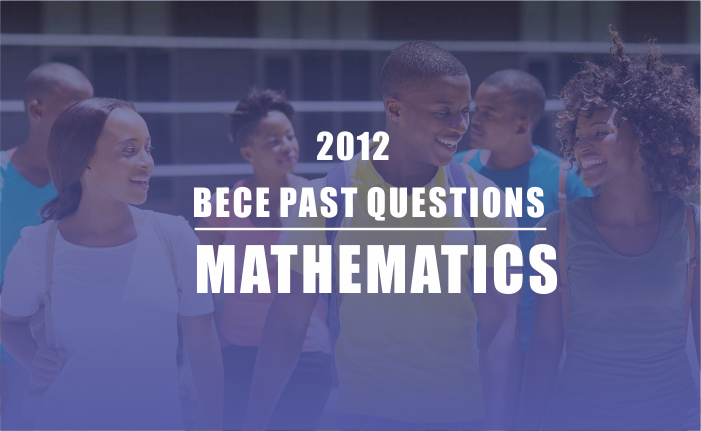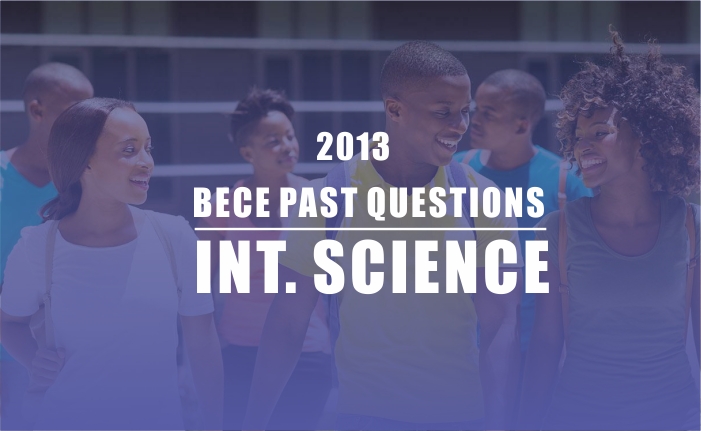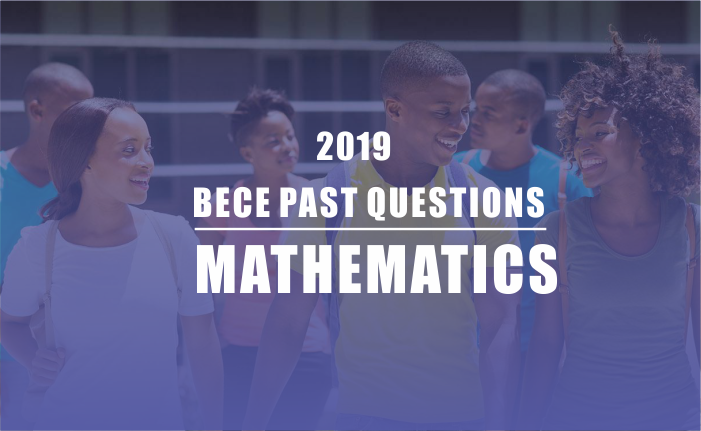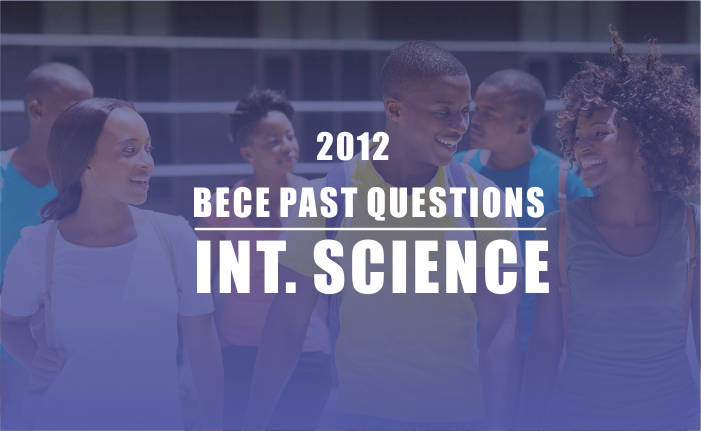Description
BECE 2012 Mathematics Questions and Answers
The Basic Education Certificate Examination (BECE) is frequently regarded by students in West African countries as a vital stepping stone that carries substantial ramifications when it comes to their scholastic and professional careers. It is essential for persons who are going to be taking the BECE to be able to practice past problems, such as those that were found on the BECE test in the year 2012. Particularly in the case of courses such as mathematics, this is the case.
This set of questions and answers for the BECE 2012 Mathematics examination is intended to provide information about the various types of questions that will be on the exam, the level of difficulty, and the major areas that should be focused on. The test will be administered in the year 2012. In order to ensure that students are sufficiently prepared for the BECE 2012 examination, the goal of this guide is to supply them with the information that they require. It accomplishes this by delving into the structure, subjects, and strategic benefits of going through the questions that are associated with the examination.
Importance of Practicing BECE 2012 Mathematics Questions
The study of mathematics is vital for students who want to achieve good marks because it serves as a basis for a wide variety of other subjects. The questions on the BECE 2012 provide an opportunity to study core mathematical ideas and practice questions that are similar to those on the exam. Through the process of going through these previous questions, students are able to determine their strengths and weaknesses, gain an understanding of areas that are frequently evaluated, and acquire skills in time management for the actual examination. By reviewing the answers, you can better understand difficult ideas and ensure that you have thoroughly prepared for the test.
Structure of the BECE 2012 Mathematics Exam
Paper 1 (Objective) and Paper 2 (Theory) are the two individual sections that make up the BECE mathematics examination. The first paper is comprised of multiple-choice questions, in which students are required to choose the appropriate response from a list of alternatives. Because of the time constraint and the extensive range of topics that are covered in this section, students are required to work fast and precisely.

Enhancing one’s ability to make decisions under timed settings can be accomplished by practicing multiple-choice questions from the BECE 2012 exam. This will result in improved accuracy. In the second paper, which is the theory section, students are required to provide written answers in which they demonstrate their comprehension by calculating and explaining their answers. In order to strengthen their ability to solve problems, students can improve their problem-solving skills by practicing past theoretical questions from 2012. This helps students comprehend the necessary processes for each type of problem.
Key Topics Covered in BECE 2012 Mathematics
The BECE 2012 exam covers mathematical principles that are basic to primary education. These concepts are included in the examination. It is vital to have a solid foundation in mathematics in order to be able to comprehend the following topic areas, which are highlighted in the questions that were used in 2012:
Algebra
Algebraic problems are common in the BECE mathematics exam, often appearing in both the objective and theory sections. Key areas include solving equations, working with inequalities, and simplifying expressions. Practicing algebra from past BECE questions strengthens logical thinking and equation-solving abilities.
Geometry
Geometry questions test knowledge of shapes, angles, and spatial relationships. BECE 2012 includes questions on identifying shapes, calculating angles, and understanding the properties of geometric figures. Geometry questions require visualizing shapes and applying formulas accurately.
Arithmetic
Arithmetic forms the core of mathematics, covering topics like fractions, percentages, ratios, and basic operations. Practicing arithmetic questions from BECE 2012 sharpens students’ abilities to solve real-world problems and manage calculations without errors.

Statistics and Probability
This section includes questions on data interpretation, mean, median, mode, and basic probability. BECE 2012 features questions that test students’ ability to understand data, analyze information, and calculate probabilities. Mastering statistics and probability questions enhances analytical thinking and data analysis skills.
Trigonometry
Although less common, trigonometry questions may appear, testing knowledge of angles, sine, cosine, and tangent ratios. Reviewing these questions can help students approach trigonometric problems confidently in the exam.
Benefits of Reviewing BECE 2012 Mathematics Answers
Reviewing BECE 2012 mathematics answers provides detailed explanations and solutions to each question, offering insights into the correct approaches for each problem. Understanding the answers allows students to learn various problem-solving techniques, recognize common errors, and develop effective strategies to answer similar questions.
Analyzing answers also teaches students the required steps to secure full marks in theory questions. For multiple-choice questions, understanding why certain options are incorrect improves critical thinking and helps eliminate wrong choices faster in the actual exam.
How to Use BECE 2012 Mathematics Questions and Answers for Revision
Students should develop a systematic study strategy that focuses on each area and topic in order to get the most out of the BECE 2012 previous questions:. They should begin by working through questions with multiple choice answers in order to build their confidence, and then move on to questions based on theory in order to increase their ability to describe solutions in a way that is both clear and accurate. Timed practice sessions assist students better manage their time by simulating the conditions of official examinations.
Examining each response in great detail and making a note of any errors or places that require improvement is something that students should do. When confronted with tough problems, seeking assistance from teachers or tutors can also help clarify difficult concepts, contributing to a comprehensive comprehension of the material.

Additional Tips for Succeeding in BECE Mathematics
Practicing past questions is one step in a successful preparation strategy. Here are additional tips for excelling in BECE mathematics:
- Master basic concepts: Ensure a strong understanding of foundational topics, as BECE mathematics often requires applying basic knowledge in different ways.
- Time management: Practicing under timed conditions builds speed and helps manage the limited time available during the actual exam.
- Check calculations: Double-checking answers prevents errors, especially in the theory section, where clear calculations are crucial for full marks.
- Stay calm and focused: Maintaining a positive attitude reduces anxiety, improves concentration, and boosts performance during the exam.
Conclusion
In order to help students achieve their goals of performing well on their examinations, the BECE 2012 Mathematics Questions and Answers are a great resource. By gaining a grasp of the structure of the examination, concentrating on the most important areas, and practicing on a consistent basis, students can develop the self-assurance and skills necessary to thrive in mathematics.





Reviews
There are no reviews yet.